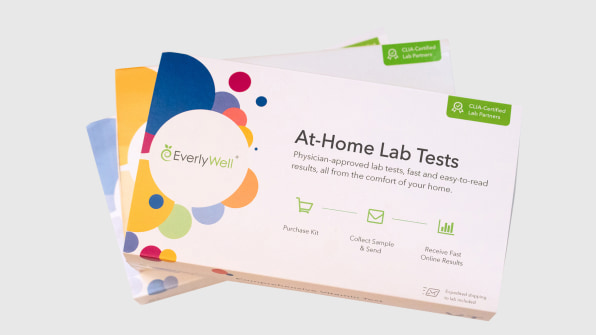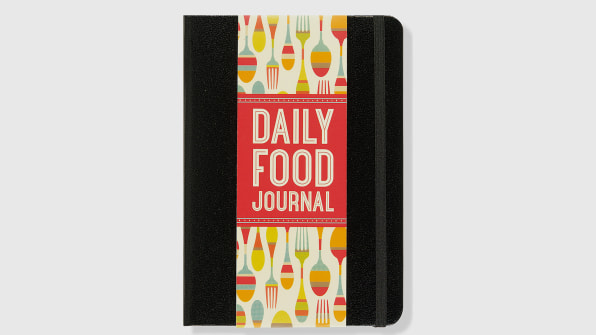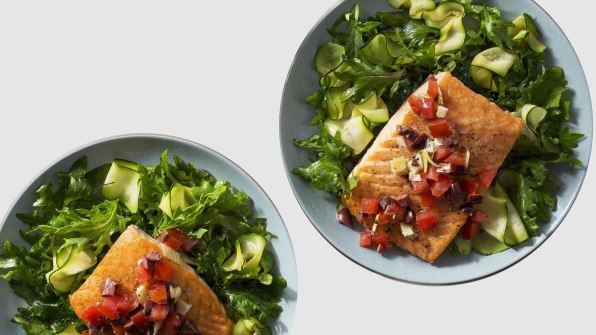You don’t need to cut out food to feel better. Just focus on the ones that are right for you.

“Lose weight,” “eat less junk food,” and “stick to a diet” top plenty of New Year’s resolution lists, but many experts say that these goals may set unrealistic expectations and set you up for failure before February even hits. Instead, doctors and registered dietician say that a more sustainable approach to managing weight, feeling good, and changing eating habits is to focus on identifying which foods nourish your body and give you the proper fuel you need to live a great life. So to jumpstart 2020, we rounded up some of the best products to help you eat well and feel your very best.

Some foods that are generally considered nutritious may not be good for you specifically, thanks to food sensitivities that can cause headaches, joint pain, fatigue, and digestive issues. To identify which foods might be the culprits, you can start elimination diet test from scratch, which can take months or years to execute properly. You can also jumpstart that process with EverlyWell’s mail-in food sensitivity test ($159), which requires just a small sample of blood. The tests, which are reviewed and approved by independent board-certified physicians, measure IgG antibodies in your bloodstream when exposed to certain foods and ingredients. (It’s important to note that this test is merely for food sensitivities, not more serious food allergies, nor can it identify is someone is lactose intolerant.) You can then use your test results to start a guided elimination diet.

Research shows that for people interested in learning more about healthy eating habits, keeping a journal is very effective tool. During one study of nearly 1,700 participants, those who kept daily food records lost twice as much weight as those who kept no records. Additionally, a food log—like this handy, self-guided Daily Food Journal ($8)—is crucial in helping to identify eating patterns and certain foods that don’t make you feel good or cause bloating, digestive issues, headaches, and the like. If you’re going to try an elimination diet, a food journal is key. The only time we wouldn’t recommend using a food log is if you are susceptible to obsessive eating patterns or food phobias; have a history of an eating disorder; or, if for any reason, a food log makes you feel guilt, shame, or fear. If that’s the case, skip this step. Because keeping track of what you eat should make you feel mindful—not bad about yourself.

Regardless of how much (or little) you drink, anyone can all benefit from cutting back on alcohol, since consumption is linked to increased risk of cancer, heart disease, immunity issues, weight gain, muscle loss, and a slew of other not-so-fun side effects. But that doesn’t mean your dry January needs to be joyless. The botanical spirits of nonalcoholic distillery Seedlip has become a hit with high-end mixologists. Now you can try them at home with the Seedlip Distilled Non-Alcoholic Spirits Sampler ($107.50, set of 3). With only three ingredients (water, natural botanical distillates, and citric acid), these spirits are good for your health and surprisingly enjoyable for the palate. Beer lovers also have more alcohol-free options available to them, such as Wellbeing Brew Co’s non-alcoholic craft beer ($12), which only has 68 calories and contains zero grams of sugar. You can also try the award-winning nonalcoholic brews ($12) of the breakout Athletic Brewing Company.

Skipping meals is a bad idea that can spike your blood sugars and lead to overeating later—and wreak havoc on your metabolism and immune system. If you find you’re simply too busy to shop for and cook your own meals and you want to avoid eating unhealthily on the run, consider a subscriptions service like the Sun Basket meal kit ($11.99 per serving for 2 people, $10.99 per serving for 4 people, regardless of frequency), which brings you a weekly box of organic and non-GMO ingredients to prepare your own meat-free or vegan meals. For people who are even more pressed for time, Sakara (starting at $239/week) delivers fresh meals, teas, and supplements that are completely organic, plant-based, gluten-free, dairy-free, non-GMO, and contain no refined sugar. No prep or cooking required.
Looking for more goodies and gadgets? Check out our handpicked suggestions.
- The best winter coats for men
- The best winter boots for men
- The best winter boots for women
- The best winter coats for women
- The ultimate gift guide for people with good taste
- 17 cozy gifts to buy your loved ones (or yourself) this holiday
- The ultimate gift guide for fitness buffs, as curated by Peloton
Fast Company may receive revenue for some links to products on our site.
"eat" - Google News
December 28, 2019 at 07:00PM
https://ift.tt/39p4iKr
2020 New Year's resolution: How to eat better and master your nutrition - Fast Company
"eat" - Google News
https://ift.tt/33WjFpI
Shoes Man Tutorial
Pos News Update
Meme Update
Korean Entertainment News
Japan News Update
0 Comments:
Post a Comment